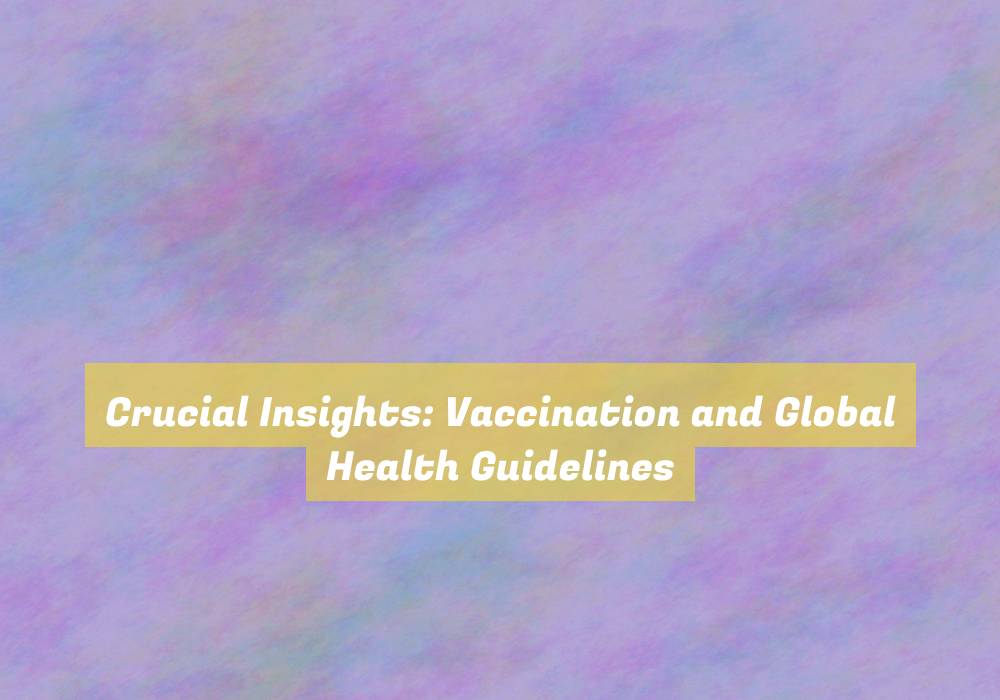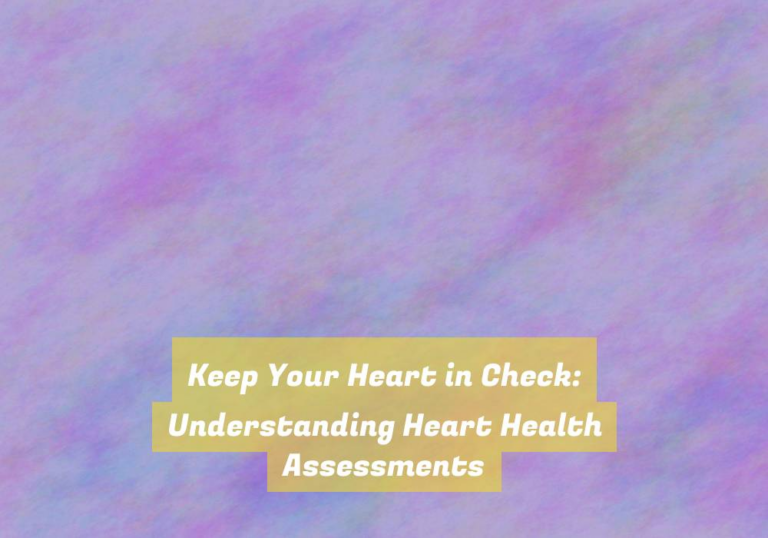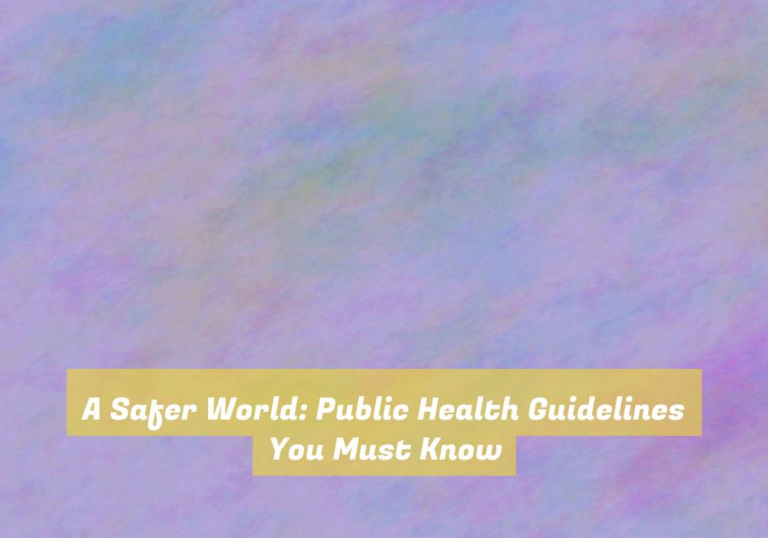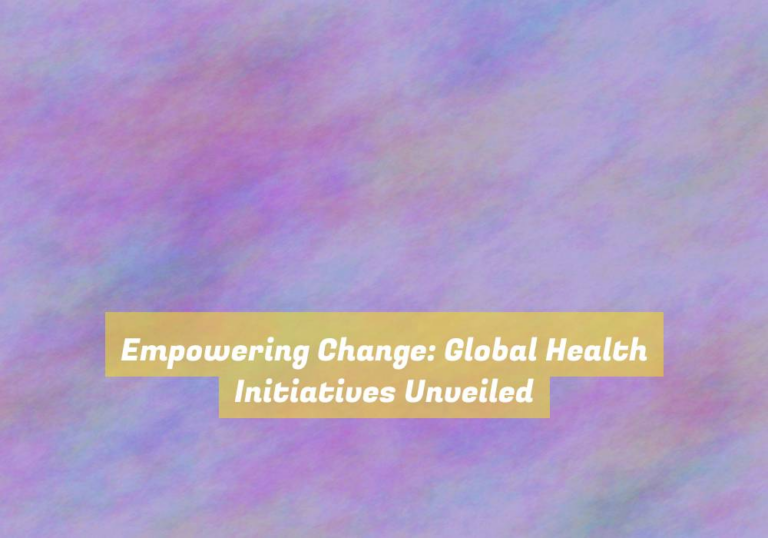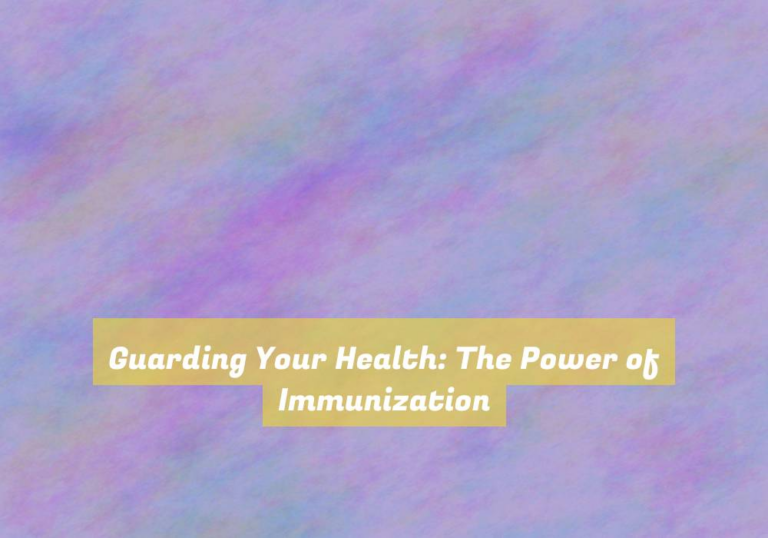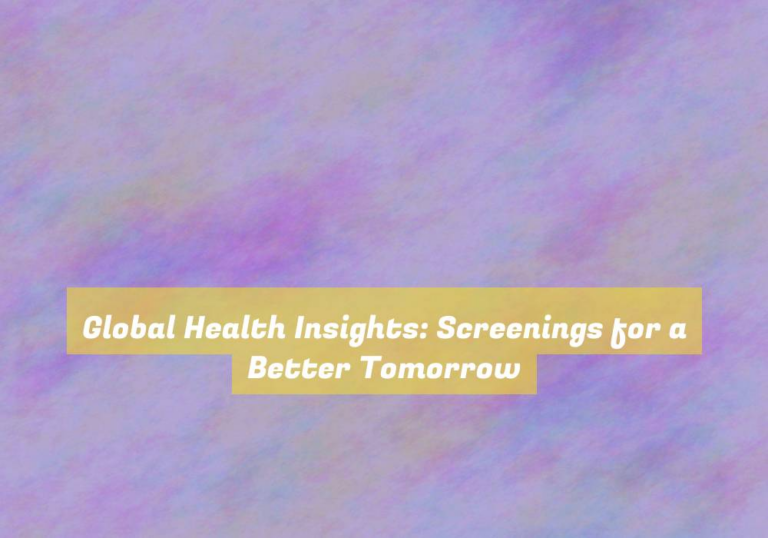Crucial Insights: Vaccination and Global Health Guidelines
YouG??ve probably heard about the ongoing global efforts to combat infectious diseases through vaccination, but have you truly considered the far-reaching impact of immunization on global health?
As we navigate through an era of constantly evolving health guidelines, the insights into vaccination and its role in shaping public health policies are crucial for understanding the complexities of our interconnected world.
From the importance of individual compliance to the broader implications for international health regulations, there is much to explore in the realm of vaccination and global health guidelines.
The Importance of Vaccination
Vaccination is essential for protecting yourself and others from preventable diseases. By getting vaccinated, you not only safeguard your own health but also contribute to the collective immunity of your community. Vaccines work by stimulating your immune system to produce antibodies, preparing it to fight off specific pathogens if youG??re exposed to them in the future. This not only reduces your risk of contracting a disease but also helps prevent its spread to others who may be more vulnerable.
When you choose to get vaccinated, youG??re taking a proactive step to prevent the spread of infectious diseases. This is particularly important for those who canG??t be vaccinated due to underlying health conditions or allergies. By getting vaccinated, youG??re helping to create a protective barrier around these individuals, reducing the likelihood of them coming into contact with potentially harmful pathogens.
In addition to protecting yourself and others, vaccination also plays a crucial role in preventing the resurgence of once common and deadly diseases. Diseases such as polio, measles, and diphtheria have been largely controlled through vaccination efforts, highlighting the importance of maintaining high vaccination rates to continue to protect global health.
Global Impact of Immunization
Globally, the impact of immunization is far-reaching, influencing the health outcomes of individuals and communities worldwide. Vaccination plays a critical role in preventing the spread of infectious diseases, reducing morbidity and mortality rates, and promoting overall well-being. By immunizing individuals against common and potentially life-threatening illnesses such as measles, polio, and influenza, the global community has witnessed a significant decline in the prevalence of these diseases. This hasnG??t only saved countless lives but has also lessened the burden on healthcare systems, allowing resources to be allocated more efficiently.
Moreover, the global impact of immunization extends beyond individual health benefits. It contributes to the overall economic development of nations by reducing healthcare costs and increasing productivity. When individuals are healthy and not burdened by preventable illnesses, theyG??re better able to participate in the workforce, contribute to their communities, and drive economic growth. Additionally, immunization has the power to promote equity in healthcare by ensuring that vulnerable populations have access to life-saving vaccines, ultimately reducing disparities in health outcomes across different regions.
In essence, the global impact of immunization is profound, touching the lives of people around the world and shaping the future of public health.
Evolving Vaccination Strategies
As global health challenges continue to evolve, itG??s imperative to adapt vaccination strategies to effectively address new and emerging threats.
One crucial aspect of evolving vaccination strategies is the development of vaccines that target multiple strains of a pathogen, known as multivalent vaccines. These vaccines have the potential to provide broader protection against different variations of a virus or bacteria, reducing the need for frequent updates to match new strains.
Additionally, the use of novel vaccine technologies such as mRNA vaccines has shown promise in rapidly responding to emerging infectious diseases. These vaccines can be swiftly modified to address new variants, offering a flexible approach to vaccination.
Furthermore, the implementation of targeted vaccination campaigns in high-risk areas or populations can help contain outbreaks and prevent the spread of diseases.
Compliance With Health Guidelines
Improving compliance with health guidelines is crucial for ensuring the effectiveness of vaccination strategies and safeguarding public health. When individuals adhere to recommended vaccination schedules and safety protocols, they not only protect themselves but also contribute to the overall well-being of their communities. Compliance with health guidelines plays a pivotal role in preventing the spread of infectious diseases, reducing healthcare burdens, and saving lives.
To enhance compliance, itG??s essential to prioritize transparent communication about the importance and safety of vaccinations. Engaging in open, honest discussions can help address concerns and misconceptions, ultimately fostering trust in vaccination efforts. Additionally, healthcare providers and public health authorities should strive to make vaccine access and information readily available to all, regardless of socioeconomic status or geographical location.
Furthermore, leveraging technology and social media platforms can aid in disseminating accurate information and combatting misinformation. By actively promoting the benefits of vaccination and addressing common myths, stakeholders can empower individuals to make informed decisions regarding their health.
Ultimately, by prioritizing compliance with health guidelines, we can collectively strive towards a healthier, more resilient global community.
Conclusion
In conclusion, vaccination plays a crucial role in global health, protecting individuals and communities from preventable diseases.
ItG??s important to stay informed about evolving vaccination strategies and comply with health guidelines to ensure the effectiveness of immunization efforts.
By understanding the global impact of immunization and the importance of compliance, we can contribute to the overall well-being of our society and promote a healthier future for all.

